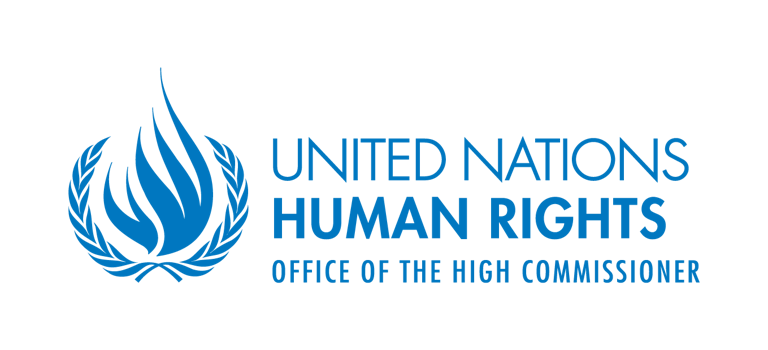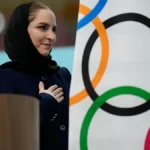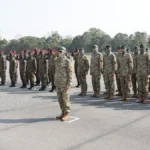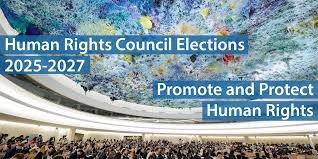UNGA Elects 18 New Members to Human Rights Council for 2025-2027 Term
The United Nations General Assembly (UNGA) recently held elections to appoint 18 new members to the Human Rights Council (HRC) for the 2025-2027 term. This decision marks a significant step in strengthening global human rights advocacy, with member states vying for a position on the HRC, which is responsible for promoting and protecting human rights worldwide. The election process is crucial for ensuring that diverse voices and perspectives are represented in the Council’s ongoing work.
Details of the Election
In the election, countries were selected from various regional groups to ensure a balanced representation on the HRC. Each newly elected member will serve for a three-year term, contributing to vital discussions and decisions regarding human rights issues globally. The election was closely monitored by various international organizations and human rights advocates, emphasizing the importance of electing members committed to upholding human rights standards. This year’s election was notable for the inclusion of several countries known for their proactive stance on human rights issues, reflecting a positive shift in global governance.
Implications for Global Human Rights
The inclusion of new members presents an opportunity to address ongoing human rights challenges faced by different regions. With rising concerns over violations and abuses, the Council’s role becomes increasingly significant. New members will have the chance to influence resolutions and recommendations that could lead to improved human rights conditions globally. Furthermore, their participation is expected to foster collaboration and dialogue among member states, enhancing the overall effectiveness of the HRC.
The Role of the Human Rights Council
The HRC was established to promote and protect human rights around the globe. Its primary functions include addressing human rights violations, fostering international cooperation, and promoting the universal implementation of human rights standards. With the newly elected members, the Council aims to enhance its efforts in addressing urgent human rights issues, including those related to discrimination, freedom of expression, and the rights of vulnerable groups.
Conclusion
The recent elections by the UNGA reflect a renewed commitment to human rights and international cooperation. The newly elected members will play a crucial role in shaping the future of human rights advocacy, making it imperative for the international community to support their efforts. As they begin their terms, the focus will remain on addressing pressing human rights challenges and ensuring that fundamental freedoms are upheld worldwide.

Why This News is Important
Strengthening Global Human Rights
The election of 18 new members to the Human Rights Council is pivotal in strengthening global human rights mechanisms. The HRC plays a crucial role in monitoring and addressing human rights violations worldwide. The new members will bring fresh perspectives and energy to the Council, which can lead to more effective strategies for protecting human rights.
Representation and Inclusivity
The election underscores the importance of representation from diverse regions and political contexts in the global human rights discourse. By ensuring that various countries are represented, the HRC can better understand and address the unique challenges faced by different populations, leading to more tailored and effective interventions.
Addressing Human Rights Challenges
With ongoing human rights abuses in many regions, the Council’s work is more critical than ever. The newly elected members will have the responsibility to tackle pressing issues such as freedom of expression, discrimination, and the rights of marginalized communities. Their contributions can lead to meaningful changes and improvements in the global human rights landscape.
Historical Context
The Human Rights Council was established in 2006 to replace the Commission on Human Rights. The move aimed to enhance the effectiveness of international human rights governance and provide a more robust framework for addressing human rights violations. Since its inception, the HRC has addressed various global issues, including humanitarian crises, violations of civil liberties, and discrimination against marginalized groups. Over the years, the Council has faced challenges regarding its credibility and effectiveness, leading to calls for reforms and more transparent election processes. The recent elections are part of ongoing efforts to ensure that the Council remains a credible platform for promoting and protecting human rights worldwide.
Key Takeaways from “UNGA Elects 18 New Members to Human Rights Council for 2025-2027 Term”
| Serial Number | Key Takeaway |
|---|---|
| 1 | The UNGA elected 18 new members to the Human Rights Council for the 2025-2027 term. |
| 2 | The elections aim to ensure balanced representation from various regional groups. |
| 3 | Newly elected members will address critical human rights issues, enhancing global advocacy. |
| 4 | The HRC is crucial for monitoring and responding to human rights violations worldwide. |
| 5 | The elections reflect a renewed commitment to international cooperation in human rights. |
Important FAQs for Students from this News
Q1: What is the Human Rights Council (HRC)?
A: The Human Rights Council is an intergovernmental body within the United Nations system responsible for promoting and protecting human rights worldwide. Established in 2006, it addresses human rights violations and offers recommendations to member states.
Q2: How are members elected to the Human Rights Council?
A: Members of the HRC are elected by the United Nations General Assembly (UNGA) through a secret ballot. The elections consider regional representation to ensure diverse perspectives on human rights issues.
Q3: What are the key responsibilities of the newly elected members?
A: Newly elected members are responsible for addressing human rights violations, fostering international cooperation, and promoting the implementation of human rights standards globally.
Q4: Why is representation on the HRC important?
A: Diverse representation on the HRC is crucial for understanding the unique human rights challenges faced by different regions. It ensures that the Council can address issues effectively and tailor its interventions accordingly.
Q5: What challenges does the Human Rights Council face?
A: The HRC faces challenges such as criticism over its effectiveness, allegations of bias, and difficulties in addressing human rights abuses in powerful nations. Ongoing calls for reforms aim to enhance its credibility and impact.
Some Important Current Affairs Links

















